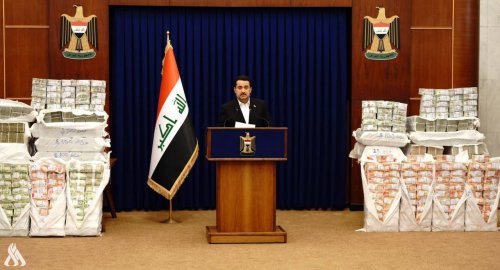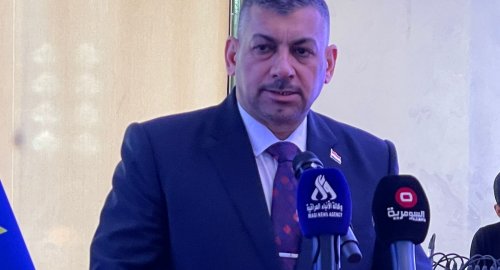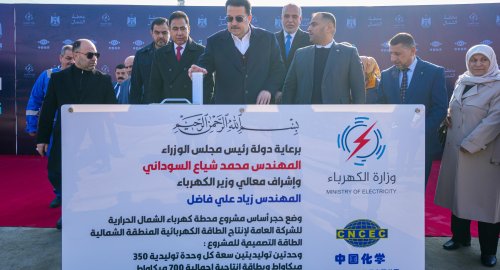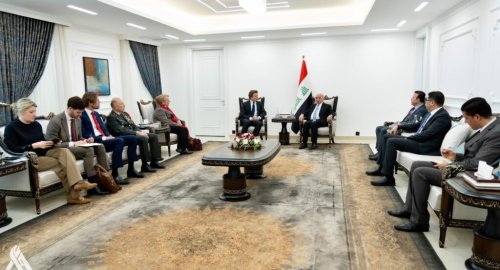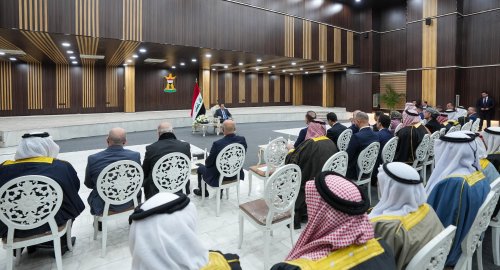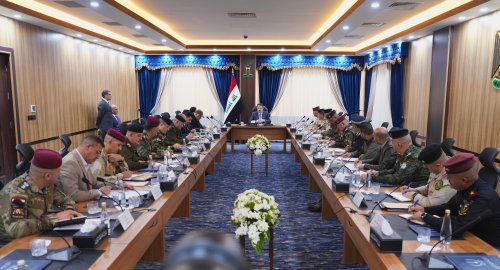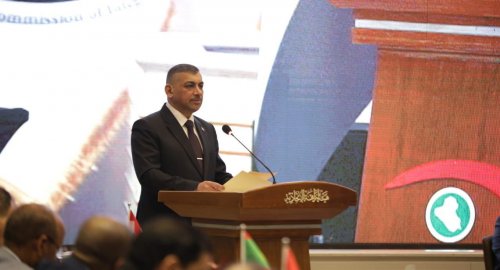
Commissioner Hanoun: Using digitization as a foundation, we plan to create a six-year national strategy against corruption

- 3-06-2024, 11:55
INA- Baghdad
Commissioner of the Federal Commission of Integrity Haider Hanoun noted that the Arab Anti-Corruption and Integrity Network (ACINET) regional forum opens the door to institutional and legal reforms as well as providing a favorable environment for the recovery of assets and money that have been smuggled.
"(ACINET), since its inception, has become a leading regional platform for capacity development, policy dialogue, and information exchange among its members," stated Hanoun during a conference held under the title "Strengthening Cooperation for Effective National Anti-Corruption Strategies," which was attended by the Iraqi News Agency's reporter. Hanoun also noted that "the network includes official institutions concerned with combating corruption from various parts of the Arab region on the one hand, and prominent non-governmental bodies in addition to a number of observers."
During the first expanded regional conference held in Amman, the Hashemite Kingdom of Jordan on July 30, 2008, he continued, "(ACINET) was established with the goal of achieving six specific strategic objectives:
1. Creating a framework that is realistic, efficient, and well-coordinated for communication and collaboration between Arab policymakers and experts in the fields of integrity promotion and corruption fight.
2. Expand policy discussions and the process of regional knowledge and capacity building in a number of areas linked to integrity promotion and corruption prevention.
3. To support the development of long-lasting partnerships at the regional and national levels and to aid in the fight against corruption, offer peer learning and advisory mechanisms.
4. Forging stronger frameworks and procedures to create performance metrics and assessment standards in the participating nations in order to track advancements in the areas of integrity promotion and corruption prevention.
5. Establish strong and reliable pillars for fruitful collaboration with parliamentarians, the media, the private sector, and civil society organizations while adhering to the internal legal frameworks of Arab nations.
6. Establish an effective system for coordination with the relevant authorities to increase the opportunities for collaboration and prevent duplication with other national, regional, and international initiatives that support the network's goals.
In order to enhance national strategies for integrity and combating corruption on the one hand, and to expand regional cooperation on the other, Hanoun stated, "We are holding this regional meeting in the capital Baghdad today to discuss regional co-operation in the service of national anti-corruption strategies."
To improve the country's standard of living and lessen the severity of potential emergencies, he pointed out that "(ACINET) includes economic, industrial, agricultural, scientific, humanitarian, military, and health plans, and is based on calculating the country's wealth, needs, and ways to preserve them, cover these needs, and create human energies of its citizens capable of leading the helm in the future." Additionally, by calculating and planning to confront potential emergencies, the network adopts raising the level of integrity in the performance of institutions and fostering a competitive environment among them on the one hand, as well as among their employees on the other. Particularly considering that the number of Arab nations with successful plans for this year (2024) has reached (11) countries.
Hanoun stressed that "the Federal Integrity Commission in the Republic of Iraq is preparing a new national strategy for integrity and anti-corruption for the next six years from 2025 to 2030, based in the preparation and implementation of cooperation with the legislative, executive and judicial authorities and with the Federal Financial Supervision Bureau on the one hand, and partnership with the private sector, civil society and investigative journalism on the other hand, using advanced technology in application."
He made note of the following: "This meeting offers the (ACINET) members a chance to assess the advancements made in the application of the national integrity and anti-corruption strategies, including the outcomes attained in practice, such as reforms, convictions for crimes, the recovery of funds obtained through corruption, and achievements in enlisting the support of the private sector and civil society."
US Central Command: We killed ISIS terrorist leader Abu Yusuf in Syria
- International
- 24/12/20
Liverpool compete with Real Madrid to sign Olympique Lyonnais star
- Security
- 24/12/19
ISC, ADX discuss Strengthening Economic Ties
- Economy
- 24/12/16
Iraq assumes presidency of Arab Investment Company’s Executive Board
- Economy
- 24/12/17

